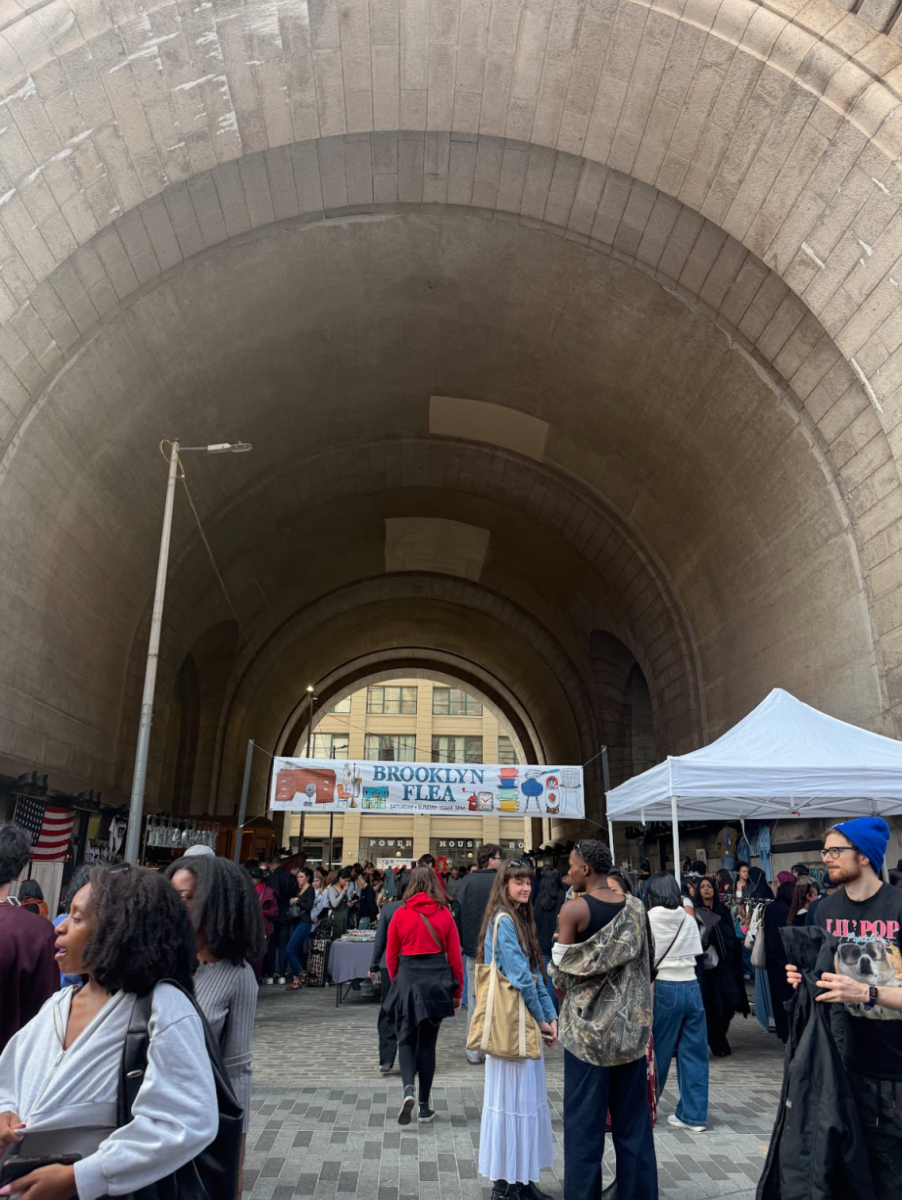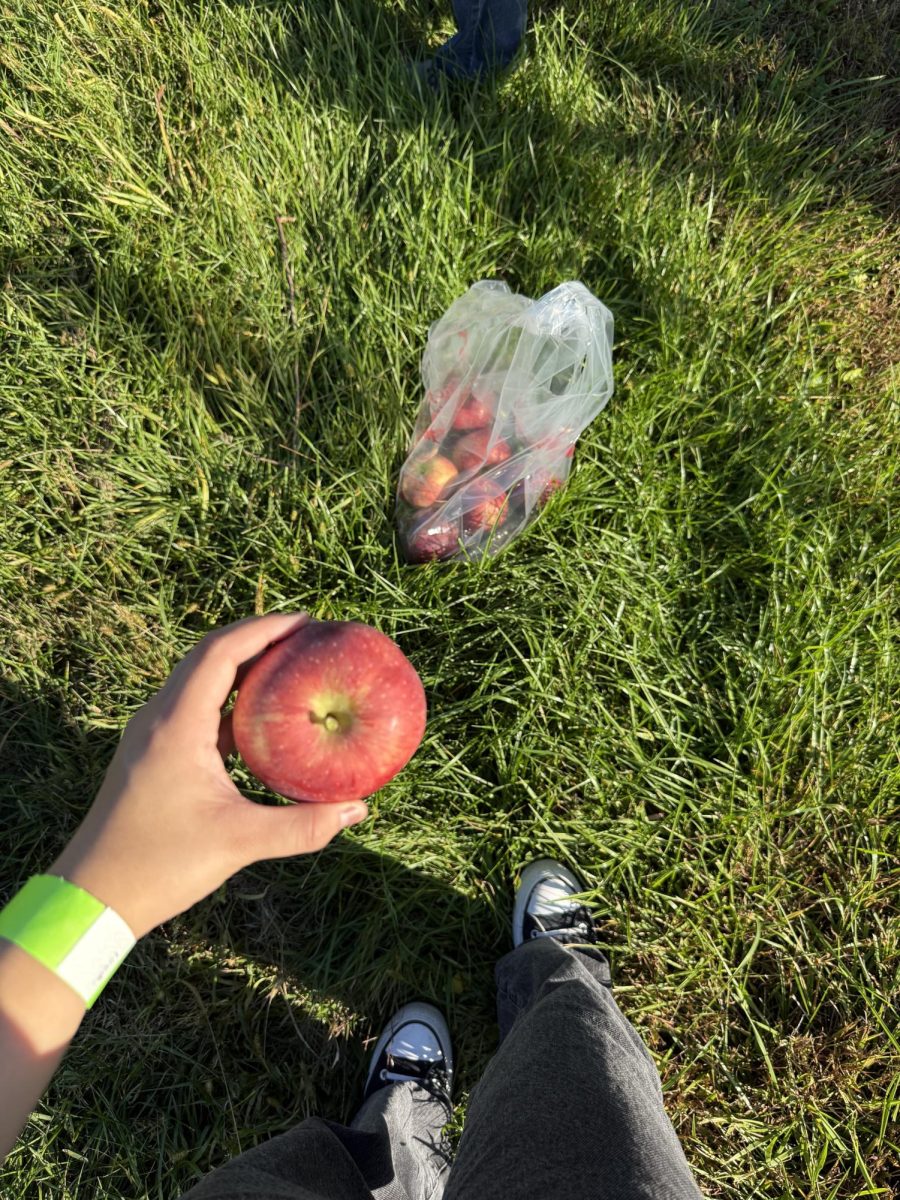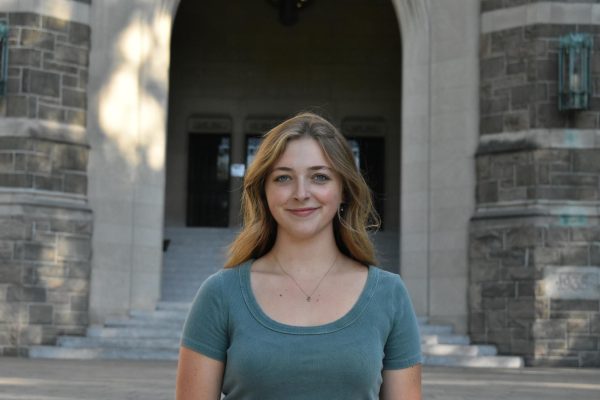It’s difficult enough trying to save the world from climate disaster, but Tarchithaa Chandra Sekharan, FCRH ’24, has plenty more on her plate. She’s a full-time student with a part-time job, a resident assistant (RA), co-president of Students For Environmental Awareness and Justice (SEAJ) and, as a senior, she’s under tremendous stress to have fun.
Her laundry list of responsibilities doesn’t keep environmental disasters from happening, and it certainly doesn’t prevent her from attending marches like Sept. 17’s March to End Fossil Fuels. They do, however, pose the threat of burnout. And to Chandra Sekharan, that’s a very serious concern.
“If you don’t take care of yourself, you can’t help other people. That’s what it boils down to,” said Chandra Sekharan. In her view, it doesn’t matter how gifted of an organizer or leader someone is, “If you are not taking care of yourself, you will crash and burn.”
This statement was a surprisingly somber departure from the 21 year old’s usual demeanor of welcome smiles and easy laughter, which had filled the cramped, RA office up until that point. But this shift in tone suggests an ever-present problem for young activists, especially those still in school: How do they take part in causes they care about without sacrificing their mental health? Chandra Sekharan has four words: “Thank you Google Calendar.”
She swears by her calendar, insisting that all college students interested in activism need to develop time-management skills. Her calendar is how she managed to spend her freshman year taking classes online, working, writing for Operation Four magazine and phone-banking with For The Many. It’s how she’s now able to deal with all the pressures of senior year with the added stress of organizing for movements close to her heart. Even during the interview, she had her Google Calendar pulled up on her laptop screen. Big blocks of time dedicated to class, work, clubs and resting, marked the days of her week in bright colors.
Her calendar, however, is not her most important tool. No, it’s her community.
“A huge part of [being successful] is having dependable team members,” said Chandra Sekharan. “It does matter that you’re surrounded by people who have empathy for the people they’re working with.”
She quickly listed off the names of her teammates in SEAJ, mentioning how during days when she’s so overwhelmed that she cannot lead their weekly meetings, one of her fellow executive members will step up. When discussing the March to End Fossil Fuels, she made a point to laud her co-president, Stizzie Demacopoulos, FCRH ’24, for the work they did to help facilitate the march by working with the Fridays for Future NYC.
Even the events she holds speak to her love of community. Her favorite event throughout the year is a semesterly SEAJ poster-making workshop, where members of the club bring paint, cardboard and a variety of craft supplies to create posters for the climate marches that take place every fall and spring. This year, SEAJ gathered at a collection of picnic tables outside one of Fordham’s resident halls, preparing their posters for the March to End Fossil Fuels. Chandra Sekharan wandered the tables, ensuring everyone had enough supplies and greeting people with a smile. The club members chatted with their friends as they painted their posters, but many spoke across the table to new faces. It was truly a community-building event, so it’s no wonder that Chandra Sekharan describes it as her favorite.
“I really, really enjoy that we take the time to prioritize getting people to know each other, and learning about each other’s life to actually show up and support each other,” she said.
A community of support. That’s Chandra Sekharan’s ethos.
Sure, her calendar is helpful, but community is the where, the how and the why to Chandra Sekharan’s activism. That’s evident in her insistence on highlighting her teammates, her welcoming nature and the environment that she has created at SEAJ. The work of community building is not just an added bonus on the route to advocacy, but a crucial step. In her view, activism without community loses its power.
“If you are only doing [activism] through your career, then you lose something important,” said Chandra Sekharan. “You have to show up as a person, as a community member.”
Instead, Chandra Sekharan plans to pursue a justice-oriented career, and hopes to continue advocating for the climate movement, as well as other movements like labor rights and immigration reform, long into the future. She’s not sure where she will end up, or in what career she will find herself in. What she does know, however, is that with her calendar organizing her schedule and her community providing her support, there’s one thing she’s sure of: “I am going to be a lifelong organizer.”











































































































































































































